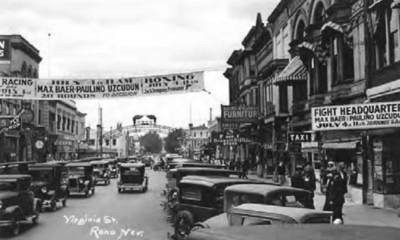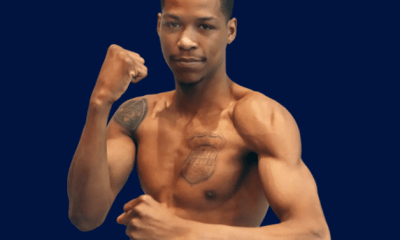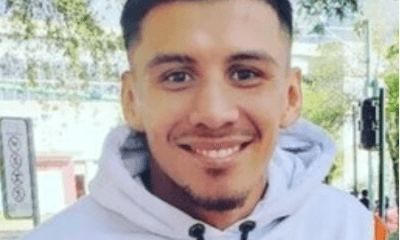Argentina
Mayweather, Maidana and Magic
Every now and then the unthinkable occurs. A moon beam pierces through the night’s sky, down through the billowy clouds, slithering through the overgrown branches of protective oak trees to reveal an ethereal gleam on the surface of the earth.
Science would tell you this is just a reflection of the moon’s light, a reflection of a reflection, really, of the sun’s light to the moon, and from the moon to the slippery green moss which hides below the trees in the deep darkness of the forest.
But really, this is magic. How else could the light from a star bring something to life so very far away? How could it be seen so very rarely unless it was so very important? Why else would the moss glimmer in its brilliance as if to say it knows how special this singular moment has now become?
If magic exists in this world, as I propose, one might say Marcos Maidana used some of it in his last fight. Maidana was a huge underdog to the enigmatic and talented Adrien Broner. But everything was in its right place for Maidana on this night. It was as if a play was unfolding right before our very eyes. Here now you boo the villain, the trash talking Broner in all his hateful guile. There now you cheer for the hero, Maidana, as he valiantly thrashes the dragon and banishes him from the kingdom of the undefeated.
This was no single act play, one gripping scene of courage and diligence. No, this was the whole shebang. The battle lasted 12 full rounds. Maidana hurt Broner early but was hurt himself midway through the fight. But Maidana found more magic by the championship rounds. Or maybe it is more correct to say that the magic found him. Whatever the order, Maidana ended the evening with a crown atop his head while Broner hobbled back to his dressing room a disheveled mess of brokenness.
Truth be told, Maidana would probably need more than magic to beat Mayweather. The latter is the preeminent fighter of his era, a defensive savant and one of the most talented and skilled fighters in the history of our sport. If he’s at his best, Maidana loses. Period.
But Mayweather is 37 years old now. It’s conceivable, or at least in the realm of possibility, that he’s begun the slow slide down Mount Olympus to his final resting place among the mortals. Oh sure, he didn’t look it in his last fight against Canelo Alvarez, but Father Time has a way of imperceptibly sneaking up to us and pulling our pants down to our knees. Physical tasks and movements that once just worked without thought suddenly feel out of place. It’s just a little at first, maybe you’re just having a bad day, and then one day your youth is gone and you are forever just a shadow on the wall instead of the object absorbing the light.
But what if the unthinkable occurs? Every now and then it does, you know. What if Mayweather is suddenly old, and what if Maidana uses the opportunity and a bit of Maidana magic to make himself master over the undefeated Mayweather?
What would it mean to both?
Maidana, it would seem, would enter the status of legend, the category specially reserved for only the best and most brilliant of hapless pugs who, despite their stature, take the bone away from the biggest and baddest dogs on the street anyway. He’s revered already now for his bruising style and hard-punching efforts in a sport it’s incredibly hard to be revered in. Beating Mayweather would take him to the next level. He’d ascend into the stratosphere as king of the tough guys, a real life Rocky Balboa.
The more interesting question, though, would be of Mayweather. Losing to Maidana would be a cut most unkind. Great champions never want to lose, but if they do, they’d certainly prefer it to happen to someone of their ilk. Maidana is no Mayweather and never will be, no matter how many times he surprises us. Mayweather is Mayweather precisely because it never surprises us when he wins. Most of that is a good thing. Mayweather is the favorite in most all of the bouts he fights, and has been in virtually all of them since he grew into his prime, because he’s just that good.
But the other part of the equation is this: Mayweather never tested his greatness in its fullest measure. Good reason or not, he never fought the other most prominent great fighter of his era, Manny Pacquiao. Good reason or not, he didn’t fight Miguel Cotto until the Puerto Rican had already proved vincible. Good reason or not, he made Juan Manuel Marquez jump two divisions up in their fight and then didn’t even bother to make weight for it. There are numerous other examples in his career of this kind of thing, and while the same can be said for numerous other fighters, historically speaking, there just seems to more of it written down in pen in Mayweather’s ledger. So much so, in fact that one at least has to give pause to the thought of Mayweather fighting in the era someone like Sugar Ray Leonard.
Think about it. Would Mayweather have tested himself against Leonard? Or Roberto Duran? Or Tommy Hearns? Or Wilfredo Benitez? Or Marvin Halger? Or would there have been good reasons for him to avoid those tests, too?
If Mayweather loses to Maidana, if magic strikes and time prevails, if an even better play unfolds before our eyes on Saturday night than the one we saw happen last December at the Alamo Dome, the question for Mayweather will be this: Did he live up to his potential? Was he really that great? Did he do enough with the time he’d been given?
Or did he just let it all slip away, failing to recognize the gravity of the moment, all those little moments, until the moon-giving magic receded back behind its natural cover?
-

 Featured Articles3 weeks ago
Featured Articles3 weeks agoAvila Perspective, Chap. 330: Matchroom in New York plus the Latest on Canelo-Crawford
-

 Featured Articles2 weeks ago
Featured Articles2 weeks agoVito Mielnicki Jr Whitewashes Kamil Gardzielik Before the Home Folks in Newark
-

 Featured Articles4 weeks ago
Featured Articles4 weeks agoOpetaia and Nakatani Crush Overmatched Foes, Capping Off a Wild Boxing Weekend
-

 Featured Articles3 weeks ago
Featured Articles3 weeks agoCatching Up with Clay Moyle Who Talks About His Massive Collection of Boxing Books
-

 Featured Articles4 weeks ago
Featured Articles4 weeks agoFabio Wardley Comes from Behind to KO Justis Huni
-

 Featured Articles2 weeks ago
Featured Articles2 weeks agoMore Medals for Hawaii’s Patricio Family at the USA Boxing Summer Festival
-

 Featured Articles3 weeks ago
Featured Articles3 weeks agoThe Shafting of Blair “The Flair” Cobbs, a Familiar Thread in the Cruelest Sport
-

 Featured Articles3 weeks ago
Featured Articles3 weeks agoRichardson Hitchins Batters and Stops George Kambosos at Madison Square Garden






















